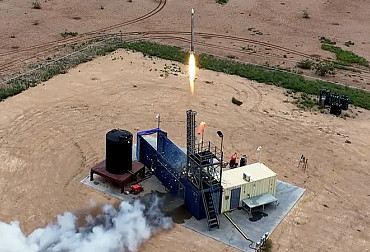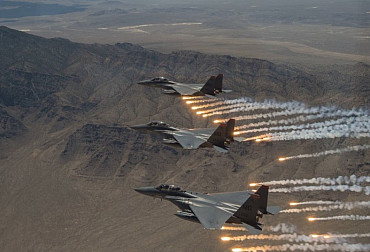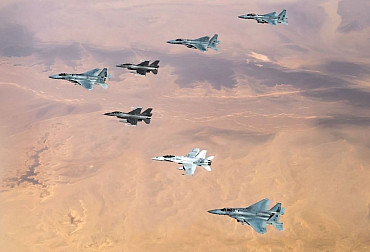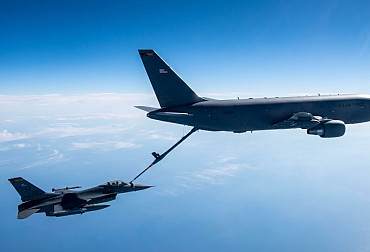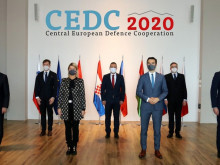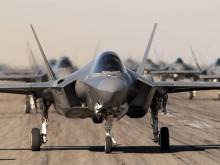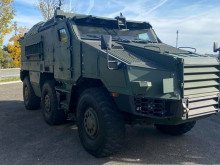Defense Committee debates Leopard 2A8 tank deal and backpack issues
The acquisition of Leopard 2A8 tanks, problems with the purchase of backpacks for the Czech Army, and the results of audit reports by the Supreme Audit Office from 2018–2022 were discussed yesterday by the Defense Committee of the Chamber of Deputies of the Parliament of the Czech Republic at its 52nd meeting. As Defense Minister Jana Černochová and Chief of the General Staff of the Czech Armed Forces, Gen. Karel Řehka, were away at the NATO summit in The Hague, they were represented by the First Deputy Chief of the General Staff of the Czech Armed Forces, Lt. Gen. Miroslav Hlaváč, and First Deputy Minister of Defense František Šulc.
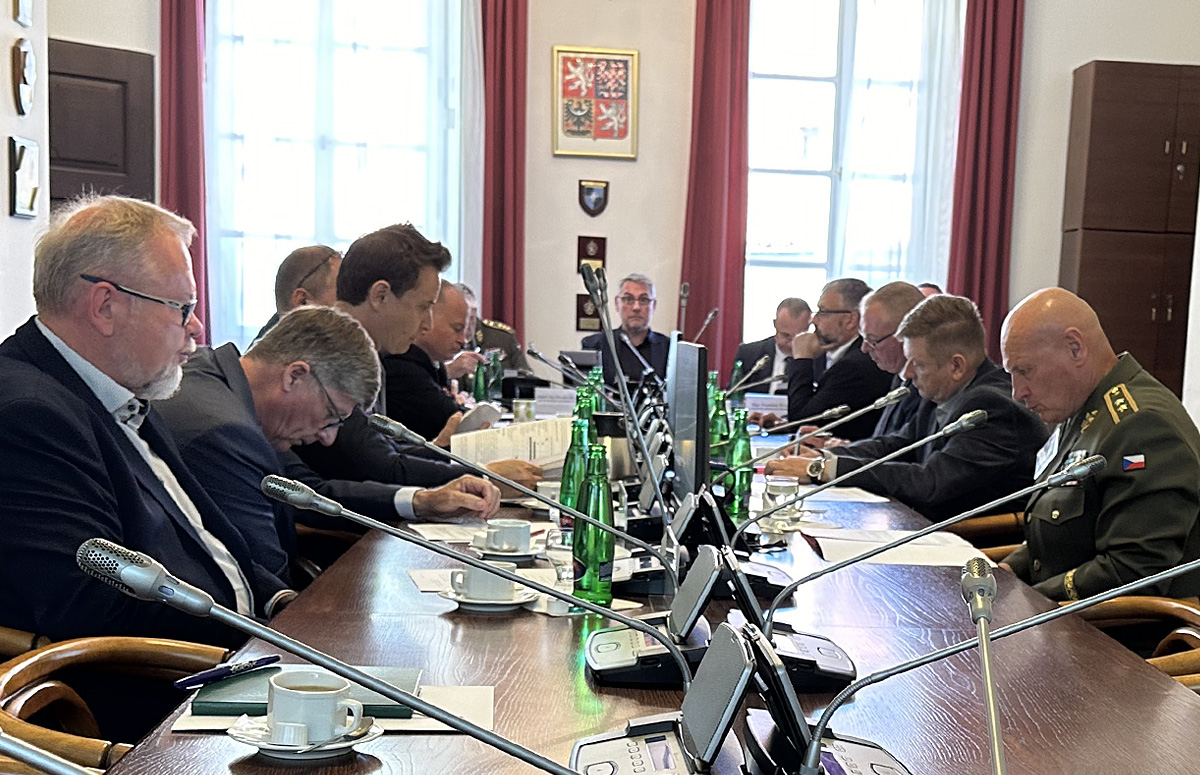
New Leopard 2A8 tanks
At the beginning of the meeting, Deputy Minister Šulc presented to MPs the objectives of the acquisition of new Leopard 2A8 tanks. The introduction of new-generation main battle tanks and their modification for the needs of the Czech Army is intended, among other things, to create the conditions for fulfilling the Czech Republic's commitment to allocate a heavy brigade to NATO. “Simultaneously with the acquisition of tanks on the Leopard 2A8 platform with the same technical specifications as part of a joint purchase with other NATO member states, a high level of interchangeability of spare parts will be achieved between these countries, thus enabling the sharing of logistical capacities,” Šulc added.
The Ministry of Defense wants to purchase 44 Leopard 2A8 combat and command tanks, for which, according to Šulc, a contract should be signed this summer. In addition, 17 tanks in four other modifications – rescue, bridge, engineering, and driver training – should be purchased. The framework agreement will also allow for the purchase of 16 additional tanks in the future. In total, the Czech Army could have up to 77 Leopard 2A8 tanks at its disposal.
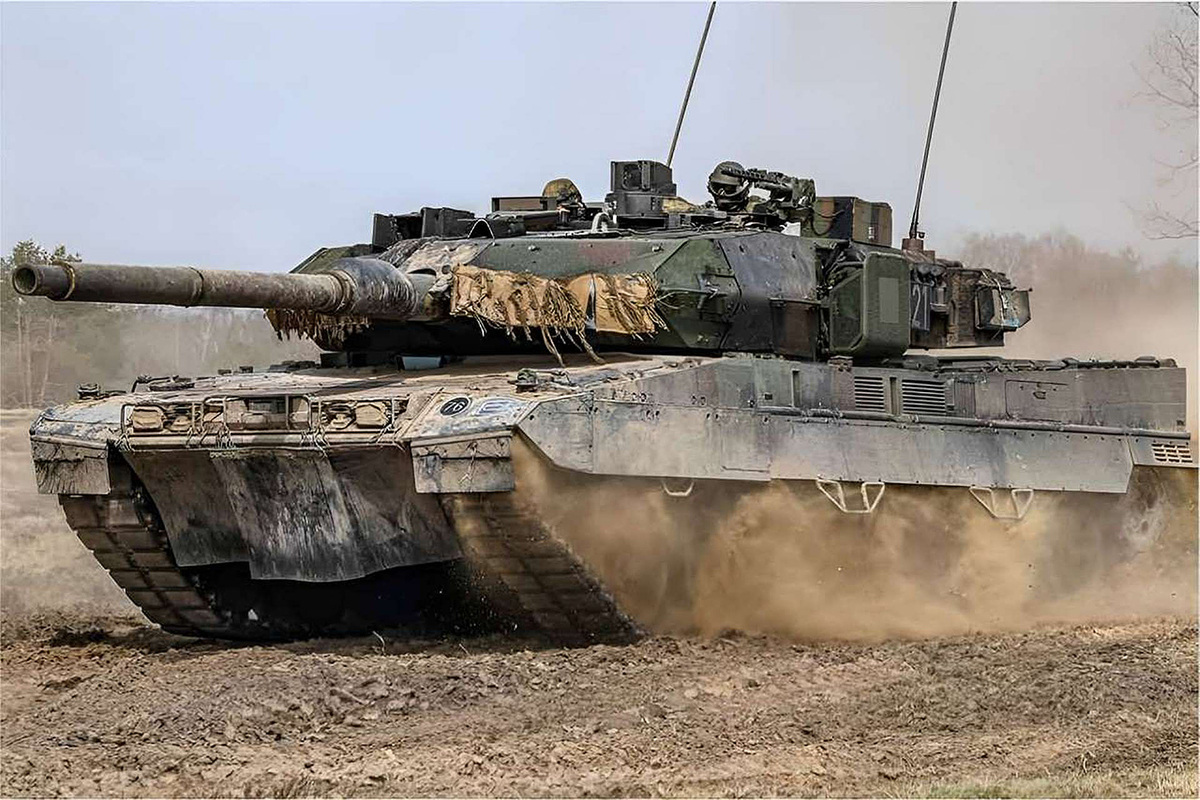
The new tanks and their modifications will be used not only to rearm the 73rd Tank Battalion, but also to partially rearm the 153rd Engineer Battalion and the Training Command – Military Academy in Vyškov. “A total of CZK 56 billion excluding VAT has been allocated to finance the Czech Armed Forces' strategic project to purchase Leopard 2A4 and Leopard 2A8 tanks,” added Deputy Minister Šulc, noting that the army should have these tanks at its disposal by 2032.
The Czech side is currently negotiating with the German Ministry of Defense and the KNDS arms manufacturer, which will supply the tanks. According to Šulc, the tendering process is currently underway and framework agreements are being negotiated. These should be signed in the third quarter of this year, with other follow-up contracts to be signed next year. MP Karel Krejza commented on this point, noting that Leopard tanks have proven themselves in the defense of Ukraine and also stated that the Czech Republic is purchasing new tanks at the same price as the German armed forces because it has entered into a joint purchase agreement with the German Bundeswehr.
Backpacks for members of the Czech Armed Forces
The committee also returned to the issue of purchasing backpacks for members of the Czech Armed Forces, noting that the media had reported complications involving military backpacks manufactured in China and detained in Russia. Deputy Minister Šulc commented on this issue, saying that the last new backpacks were delivered to soldiers at the end of 2009 and that the Ministry of Defense is trying to quickly rectify these past debts. According to him, this is also evidenced by the sharp increase in funds allocated for equipment and other personal items.
Šulc also recalled the genesis of this acquisition, noting that the Czech Army submitted a specific request for equipment specifications to the contractor in 2020. A public tender was then announced, and after evaluation, Husky CZ was selected and a framework agreement was signed on April 20, 2021. As a result of the Covid-19 pandemic and a significant increase in the prices of input materials and transport, the supplier requested an increase in the unit price, which is not permitted by law, and therefore an agreement was concluded on May 10, 2022, to terminate the contract due to impossibility of performance.

Subsequently, a new purchase agreement for the supply of backpacks was signed as a matter of urgency, and these are now being delivered in stages. At the same time, a new public tender for 2025 and 2026 is underway. In addition, several smaller orders were carried out decentrally by the acquisition departments of the General Staff. These backpacks are used for training and differ from the equipment intended for professional soldiers.
Genpor. Hlaváč commented on this point, saying that it is sad that something as trivial as a backpack has been in procurement for more than five years. “The fault does not lie with the army; we have to look at how some companies operate and how unreliable they are,” said Hlaváč. "Today, for us, for the morale of our soldiers, the purchase of backpacks is perhaps more important than major strategic weapons. Whenever you arrive at a unit and ask the soldiers what they need or what they would change, they will tell you: backpacks, ballistics, equipment. They are not so concerned about when a new BVP, 2A8, or F-35 will arrive. They want to have quality equipment for their daily activities and training," emphasized the Deputy Chief of the General Staff.
According to Hlaváč, there are currently three orders for the delivery of 30,000 backpacks for professional soldiers and 10,000 backpacks for active reserve units. For this reason, Husky is purchasing 14,591 small and large backpacks and another 800 olive backpacks. “We want them to be used in Vyškov for basic training courses, such as voluntary military training or programs for high school students. They will be used where the quality required for professionals or active reserves is not necessary,” said Gen. Hlaváč, commenting on the quality of the backpacks.
More detailed information about the seized backpacks was also provided to MPs by Major General Robert Bielený, who pointed out that the much-publicized order for 800 backpacks was carried out as a small-scale contract in accordance with the law. "Last year, we purchased 400 large and 400 small backpacks commercially available in green. The only requirement was that they be two-compartment, with a volume of 35 to 40 liters, equipped with a waist and chest strap. These backpacks are intended for military training in secondary schools, basic training, and voluntary military training," said Bielený. According to him, the army took this step mainly because of the significantly lower price. As for the Chinese origin of the backpacks, the general said that in this price category, all competing companies manufacture their products in China. The original delivery date was set for June 20, 2025, but due to transportation problems through the Russian Federation, this date will not be met. “The contracting authority assessed the supplier's request and concluded an amendment according to which the delivery will be completed by July 31, 2025,” added General Bielený, noting that if this new deadline is not met, the army will apply contractual penalties.
During yesterday's session, we asked MPs the following question: Do you think that the current criteria for purchasing equipment for the Czech Army are optimal and adequate for the modernization of our army, and what could help speed up military acquisitions, especially for equipment components?
Lubomír Metnar (ANO), Committee Chair
The current criteria for procuring equipment for the Czech Armed Forces are not entirely bad, but their application in practice faces structural and legislative limitations. Significant efficiency gains in equipment procurement could be achieved by simplifying and revising the acquisition rules for the defense sector, particularly at the EU level, greater involvement of Czech manufacturers and development centers, and digitization of equipment procurement processes.
Jan Hofmann (ODS), Vice-Chairman of the Committee
I think we should think about how we buy military equipment, where contracts often end up in complicated and lengthy tenders. Then, unfortunately, the army ends up waiting for equipment for several years, or the equipment ends up somewhere in Russia instead of here. For military contracts, I would simplify the supplier selection process so that the army gets what it needs, when it needs it.
Pavel Růžička (ANO), Deputy Chairman of the Committee
First and foremost, the army should insist that if something has been agreed in a contract, it should also be delivered. It is unacceptable for it to be satisfied with bulletproof vests that turn out to be penetrable halfway through their service life, backpacks that it never receives, Tatra trucks that lack the equipment they are supposed to have, Michelin-star kitchens that are expensive and, on top of that, are not even delivered on time, boots with soles that come unstuck, and I could go on for hours.
Radovan Vích (SPD), committee member
The army is trying to provide for its soldiers, but it has not been successful in the long term. Personally, I am in favor of giving soldiers a flat allowance, say 50,000 crowns a year as a clothing allowance, and offering them equipment components for purchase on a normal commercial basis, outside the ministry, which would create a competitive environment and pressure on the quality-price ratio. All this, of course, while maintaining the uniformity of products, but with different quality.











